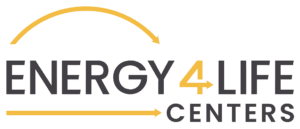Introduction
Traditional Chinese Medicine (TCM) is a holistic approach to health that encompasses various practices that have been developed over thousands of years. TCM has been gaining popularity in recent years, not only in China, but also in many parts of the world. TCM is based on the idea that the body is an interconnected system, and health issues arise when there is an imbalance in this system. TCM aims to restore balance to the body and promote natural healing.
The Principles of TCM
TCM is based on the principles of Qi, Yin and Yang, and the Five Elements. Qi is a vital energy that flows through the body, and when it is blocked, illness can occur. Yin and Yang are opposing forces that must be balanced in order to maintain good health. The Five Elements are wood, fire, earth, metal, and water, and they are associated with different organs in the body.
Wood Element
The wood element is associated with the liver and gallbladder. In TCM, the liver is responsible for the smooth flow of Qi, or vital energy, throughout the body. When the liver is not functioning properly, it can lead to a blockage of Qi, which can result in symptoms such as irritability, depression, and digestive issues. The gallbladder is responsible for storing and releasing bile, which aids in digestion.
Fire Element
The fire element is associated with the heart, small intestine, pericardium, and triple burner. In TCM, the heart is considered the ruler of the body, and is responsible for circulating blood and controlling the mind. When the heart is not functioning properly, it can lead to symptoms such as insomnia, anxiety, and heart palpitations. The small intestine is responsible for absorbing nutrients from food, while the pericardium is responsible for protecting the heart. The triple burner is responsible for regulating the body’s temperature and metabolism.
Earth Element
The earth element is associated with the spleen and stomach. In TCM, the spleen is responsible for transforming food into Qi and blood, while the stomach is responsible for receiving and digesting food. When the spleen and stomach are not functioning properly, it can lead to symptoms such as bloating, diarrhea, and fatigue.
Metal Element
The metal element is associated with the lungs and large intestine. In TCM, the lungs are responsible for breathing and circulating Qi throughout the body. When the lungs are not functioning properly, it can lead to symptoms such as coughing, shortness of breath, and fatigue. The large intestine is responsible for eliminating waste from the body.
Water Element
The water element is associated with the kidneys and bladder. In TCM, the kidneys are responsible for storing Jing, or essence, and regulating the body’s water metabolism. When the kidneys are not functioning properly, it can lead to symptoms such as back pain, fatigue, and frequent urination. The bladder is responsible for storing and eliminating urine.
The Benefits of TCM
TCM can be used to treat a wide range of health issues, from chronic pain to digestive problems. One of the main benefits of TCM is that it aims to treat the root cause of the problem, rather than just the symptoms. TCM practitioners take a holistic approach to health, and consider the physical, emotional, and mental aspects of the individual. TCM can also be used as a preventative measure to maintain good health and prevent illness. In addition, TCM has little to no side effects, making it a safe and natural alternative to conventional medicine.
TCM in Modern Medicine
TCM is becoming more recognized in modern medicine, with many hospitals and clinics offering TCM alongside conventional treatments. In some cases, TCM has been shown to be as effective as conventional medicine, and in some cases even more effective. TCM can also be used in conjunction with conventional treatments to improve outcomes and reduce side effects. As TCM continues to gain popularity, more research is being conducted to further understand its benefits and effectiveness.
Conclusion
Traditional Chinese Medicine offers a holistic approach to health that has been practiced for thousands of years. By restoring balance to the body, TCM promotes natural healing and can be used to treat a wide range of health issues. TCM has minimal side effects and can be used as a preventative measure to maintain good health. As TCM gains recognition in modern medicine, it is clear that it has the potential to become an important part of our healthcare system.

